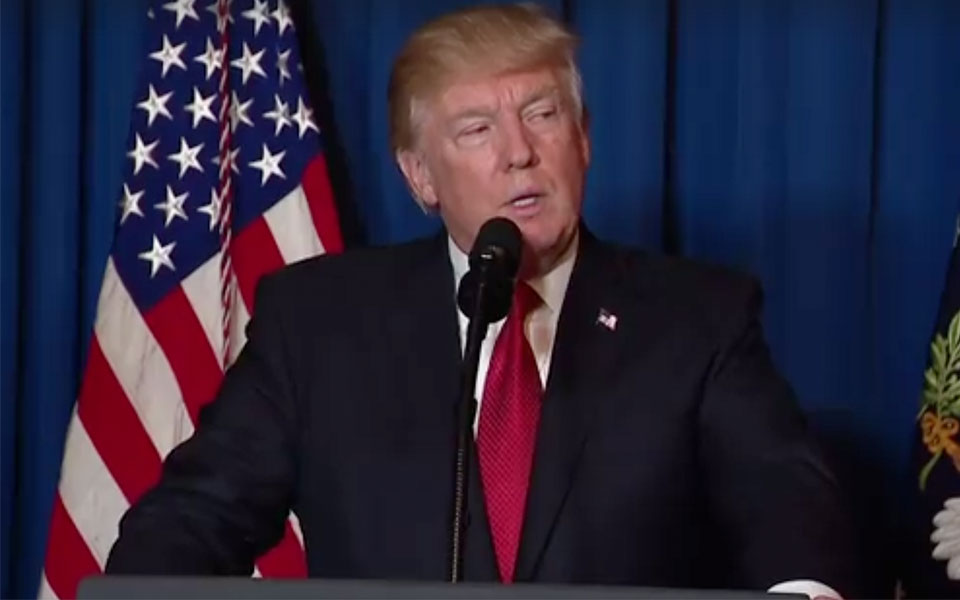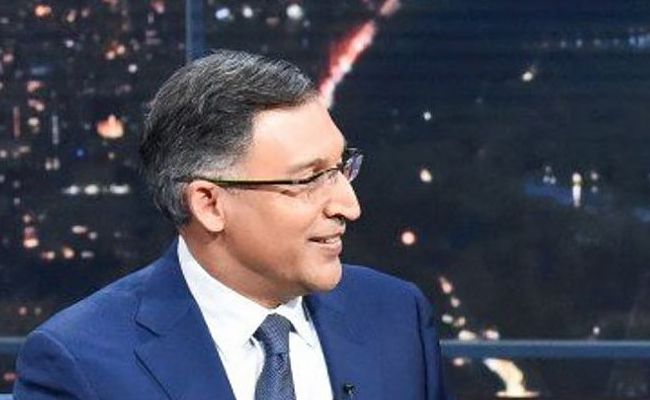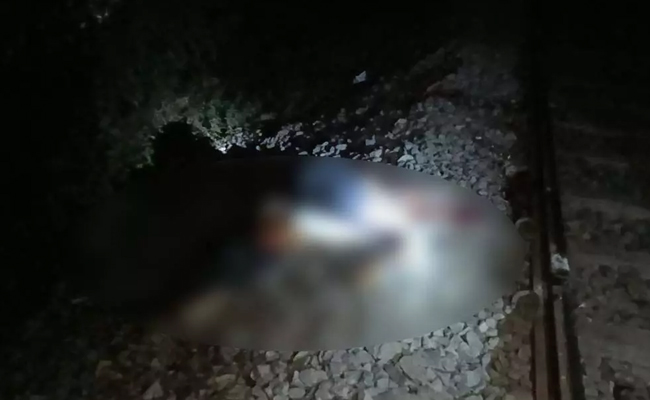Washington: President Donald Trump has slapped high tariffs on import of solar cells and washing machines to protect the American market badly hit by products from countries like China and South Korea.
The move is in line with President Trump's "America First" trade policy.
The US Trade Representative (USTR) made the recommendations to the President based on consultations with the inter agency Trade Policy Committee (TPC) in response to findings by the independent, bipartisan US International Trade Commission (ITC) that increased imports of washers and solar cells and modules are a substantial cause of serious injury to domestic manufacturers.
A spokesman said the administration would "always defend American workers, farmers, ranchers and businessmen".
"These cases were filed by American businesses and thoroughly litigated at the International Trade Commission over a period of several months," said USTR Robert Lighthizer.
"The ITC found that US producers had been seriously injured by imports and made several recommendations to the President," he said.
The USTR said injury to US washing machine manufacturers stems from a sharp increase in imports that began in 2012.
The ITC found that imports of large residential washers increased "steadily" from 2012 to 2016, and that domestic producers' financial performance "declined precipitously."
The relief will include a tariff of 30 per cent in the first year, 25 per cent in the second year, 20 per cent in the third year, and 15 per cent in the fourth year.
Additionally, the first 2.5 gigawatts of imported solar cells will be exempt from the safeguard tariff in each of those four years, USTR said.
The US Trade Representative will engage in discussions among interested parties that could lead to positive resolution of the separate antidumping and countervailing duty measures currently imposed on Chinese solar products and US polysilicon, it said.
According to USTR, the goal of those discussions must be fair and sustainable trade throughout the whole solar energy value chain, which would benefit US producers, workers, and consumers.
Shares in Whirlpool rose 2.5 per cent on the news, and it immediately announced it would employ 200 more people. Shares in US solar panel manufacturers also went up.
Environmentalists argue that making solar panels more expensive risks holding back the development of renewable energy in the country.
China and South Korea have reacted angrily to the news.
South Korea said it would complain to the World Trade Organization (WTO), calling the tariffs "excessive" and "regrettable". Its manufacturers, including Samsung and LG, compete in the washing machine market with US firms such as Whirlpool.
Samsung called the tariffs "a tax on every consumer who wants to buy a washing machine".
Meanwhile China, the world's biggest solar panel manufacturer, said the move would further damage the global trade environment.
China is the US's biggest trading partner and government spokesman Wang Hejun said that Beijing expressed "strong dissatisfaction" with the US move.
Let the Truth be known. If you read VB and like VB, please be a VB Supporter and Help us deliver the Truth to one and all.
Udupi: Udupi City Police have arrested two persons, including a woman, in connection with the alleged misappropriation of property tax funds belonging to the Udupi Municipal Council.
The accused have been identified as Shalini, who was working as a tax consultant outside the municipal office, and Ganesh, a bank employee.
According to police, Anand Suvarna had paid Rs 34,730 towards 12 years of property tax for his building in Kalmadi to Shalini on October 16, 2025. She reportedly issued him a receipt acknowledging the payment.
However, when Suvarna recently checked the status of the payment on the property tax portal, he found that the amount had not been credited and was still shown as pending. He then brought the matter to the notice of the Municipal Commissioner, who verified that the payment had not been recorded.
During questioning, Shalini allegedly admitted to the lapse. On February 16, 2026, she generated a new challan in Suvarna’s name and paid Rs 35,213 towards the dues.
Police said a case has been registered at the Udupi City Police Station against the accused for allegedly misappropriating tax money and defrauding the government by affixing the seal of Union Bank on the challan without remitting the amount initially received from the taxpayer.
Further investigation is under way.





